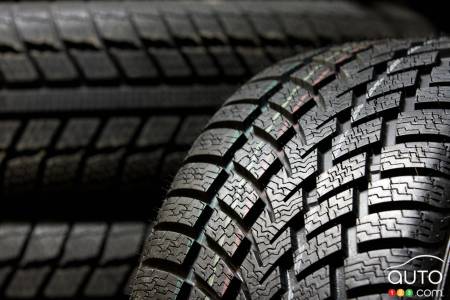In collaboration with Pneus Touchette
The importance of choosing the right winter tires cannot be overstated; it affects your comfort and that of your occupants, your budget and your driving pleasure during the winter months. Don’t hesitate to consult with qualified specialists like TireLand or Pneus Touchette. After all, those winter tires are on your car for nearly six months out of the year!
To help you choose the right winter tires, we have gathered the most frequently asked questions with answers.
Q: How do I choose a good winter tire? Snow or ice, asymmetrical or unidirectional, speed-rated, load capacity? What budget should I give to it?
A: Only a qualified specialist can answer you properly. They will take into account the car you drive, what you use it for, your driving style, your budget, even how long you intend to keep your vehicle. A specialist can also advise you on which brand to choose!
Q: When should I shop for winter tires?
A: We recommend doing it during the month of October, when inventories and selection are high and you have time to place your order if need be. This is more and more frequent as manufacturers increasingly fit cars with non-standard sized tires.
Q: Are my current winter tires still adequate?
A: Generally, if the depth meter indicates 5/32nd of an inch (5-6 mm), you can continue to use them. However, take into account your specific needs, as performance can vary to a great degree. It is important as well to verify if the tire wear is evenly spread or has deformed or damaged the tires.
Q: Is it a good idea to place winter tires on my car that are smaller or thinner, or have a smaller circumference?
A: So that you don’t modify the original manufacturer-designed performance of your car, or affect the ABS braking system, it is recommended that you stay with the original tire size intended for your car, or at least as close to it as possible. There is a reference guide that you consult – ask your tire specialist.
Q: Can I use my original alloy wheels/rims?
A: If you opt for a full second set of wheels, the initial cost will be higher, but subsequent costs for tire changes will be lower, the risk of damaging tires or wheels during changes will be reduced, and you will better preserve the appearance of your set of summer tires.
Q: Do I opt for steel or alloy wheels? Original make or outside brand?
A: In general, original manufacturer wheels are more costly, but in return the fit is perfectly adjusted, the quality of finish is higher and the resistance is superior. At the same time, there are a number of excellent external brands available that are well-suited to your car.
Q: Should I install winter tires on an SUV or pickup truck?
A: Though your tires’ appearance may suggest they offer more robust traction, that does not make them better suited to winter driving. In reality, they offer just as mediocre performance in cold weather or on snowy roads as the summer tires on any car. During the winter months your tires must feature the snowflake/mountain icon, the only exception being SUVs or trucks weighing over 4,500 kg (10,000 lb).
Q: What about using studs?
A: Again, this depends on the use you make of your vehicle. On ice, studs are highly effective, but on paved roads in cold temperatures your car will lack adherence, especially if the studs were not factory-installed. In addition, the presence of studs significantly increases noise levels when driving.
Q: Should I fill my tires with nitrogen in winter?
A: Filling tires with nitrogen is recommended, especially as it reduces the need to check the air pressure in your tires. It’s never a fun experience to have to check the tires or add air to them in wintertime. During the cold-weather seasons, it’s common to see cars on the road with under-inflated tires. And yet, proper inflation is just as important in winter as during the summer to extend the lifespan of your tires and maximize your car’s performance on the road.
Q: How about all-season tires certified for winter driving?
A: This is an interesting alternative for those who do a little driving during the winter months, or that spend much of that time out of the country. Certified all-seasons allow snowbirds to use their car as soon as they return home or visit.
Choosing winter tires is a complex, costly endeavour, and the shopping experience can vary greatly depending on where you go. The importance of consulting a qualified specialist like at Ici Pneu orPneus Touchette, who is also in a position to honour the tires’ warranty, cannot be emphasized enough. To ensure the service you get is optimal, it is best to make an appointment by telephone or by email, so that the specialist is fully at your disposal when you do visit. As for the budget question, try to avoid basing your decision solely on price. Keep in mind that when you buy winter tires and/or wheels, the cost of this important purchase is spread out over a number of years and kilometres – a worthwhile investment when it comes to ensuring proper safety and performance. Happy driving this winter!








